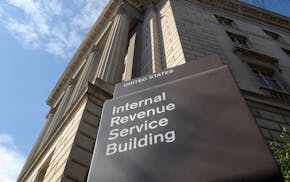There is a tendency to look inward during difficult economic times, and the past year has been no exception. Relative to other industrialized nations, the U.S. Congress and the American public have never been that keen on humanitarian assistance to less-developed countries, and now that interest is in free fall. We should push back against such isolationist inclinations.
Among our nonmilitary foreign-assistance programs, the Peace Corps is by far the smallest, with an annual budget of $330 million. This agency, created during the John F. Kennedy administration in 1961, has sent nearly 200,000 volunteers overseas in its almost 50-year history. These volunteers, of all ages, have ventured to some 139 countries to engage in small-scale development projects, teach school or provide technical assistance. To George W. Bush's credit, he sought to double the size of the agency between 2002 and 2007.
Unfortunately, the Bush administration fell short of this goal and, in fact, has been cutting positions at the agency since 2007. Indeed, due to dwindling budgets and unfavorable exchange rates, the Peace Corps seems to be in a major roll-back phase. The agency is now closing recruiting offices in Denver and, yes, the Twin Cities.
As a former Peace Corps volunteer myself and as a professor at an internationalist-leaning liberal arts college, I have seen many of my own students join the Peace Corps. The closing of the recruitment office in the Twin Cities (which also covers the Dakotas, Iowa and Wisconsin) is unfortunate given Minnesota's progressive traditions (Hubert Humphrey was a huge supporter of the Peace Corps), global outlook and history of sending large numbers of volunteers into the Peace Corps. In fact, the University of Minnesota and Carleton, St. Olaf and Macalester colleges are among the top schools in the country that produce such volunteers.
Some of my former students who have been accepted as volunteers overseas are now finding that their positions are on indefinite hold. Other reports suggest that the training time for new volunteers is being cut back to save on costs.
Is Peace Corps a jobs program for America's youth? It may be (especially in a bleak year for graduating college seniors), but it is also a hugely important investment in the future of our country. By working one on one with local people in other countries, Peace Corps volunteers help rebuild our reputation abroad in small but significant ways. In the process, they also learn new languages, gain respect and insight about local and regional traditions, and come to understand different environments. All of these important skills and insights return to the United States with volunteers. Many of our current leaders in government, in the foreign-policy establishment and in academia were once Peace Corps volunteers. Others use lessons learned overseas to serve the American population as school teachers, social workers or doctors.
Compared with other international aid programs, the Peace Corps is a real bargain. Volunteers earn about $2,500 a year in local currency. Even after factoring in airfare, health-care costs and a one-time readjustment allowance upon returning to the States, Peace Corps volunteers are far cheaper than other types of foreign assistance.
Barack Obama won with overwhelming support from the youth vote in this country. He owes a debt to this constituency and therefore should do everything he can to support programs valued by this demographic, including the Peace Corps and AmeriCorps. He must therefore honor his pledge to double the size of the Peace Corps from 7,876 to 16,000 volunteers by March 2011, the program's 50th anniversary.
U.S. Rep. Betty McCollum, from Minnesota's Fourth District, is a supporter of the Peace Corps and will play a key role in funding this initiative as a member of the House Appropriations subcommittee. Other members of Minnesota's congressional delegation should be urged to make funding for this agency a priority in what will certainly be a budget-slashing 2009.
We've heard a lot about a government stimulus package focused on physical infrastructure. By increasing funding for the Peace Corps, we are investing in our youth and in global understanding, the intellectual capital of the future.
William G. Moseley is an associate professor of geography and director of the African Studies Program at Macalester College in St. Paul. He was a Peace Corps volunteer in Mali (West Africa) from 1987-89.
Readers Write: Politicized education, presidential debates, election strategies, small-town papers

Taxes increasingly paying for the past — not the future
!["Since the [Hennepin Healthcare System] Board took control in 2007, CEO pay increased by more than 142%. Meanwhile, that same board sunsetted employee](https://arc.stimg.co/startribunemedia/J7MD7DSJWMP3KYIYUSCQTABOAA.jpg?h=91&w=145&fit=crop&bg=999&crop=faces)

